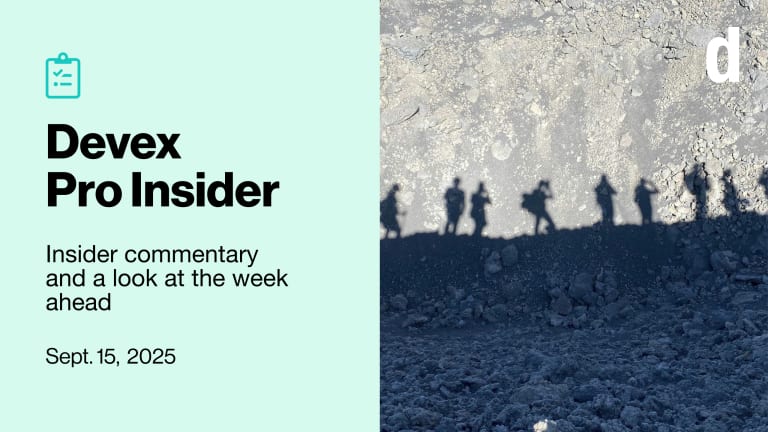When refugees arrive on the Greek island of Lesbos, they board buses bound for their next destination. Speakers blaring overhead tell them what will happen next. They learn how to get a ticket for the ferry, where to sleep, what questions to expect.
That information comes from Internews, an organization focused on independent media and access to information. Alison Campbell, senior director for Global Initiatives, caught up with Devex on a recent trip to San Francisco, California, to discuss the News That Moves campaign, which provides people traveling the Balkan route to Europe with the news they need to continue their journey.
“If we can infuse this social movement with higher quality information and make it more robust, it will be more resilient to outside shock, corruption, disruption, trafficking, distractions, etc.,” she said, tracing her finger toward Damascus, Syria, on a map illustrating the information services of News That Moves. “Information becomes a kind of glue that holds everyone together going right back to here.”
Read more #AcrossBorders stories:
► #AcrossBorders: Changing the migration narrative
► #AcrossBorders and origins: Can we get smarter at preventing people from fleeing?








